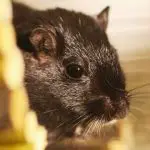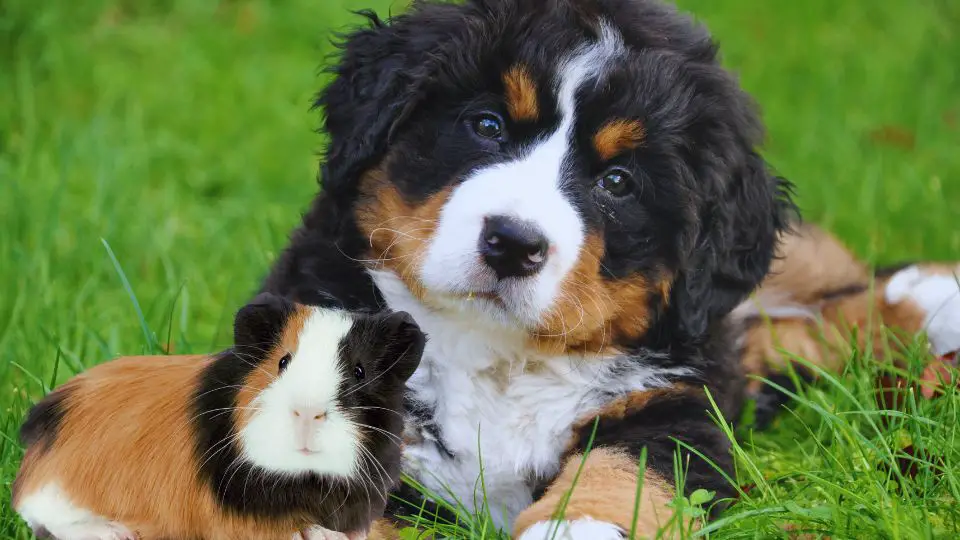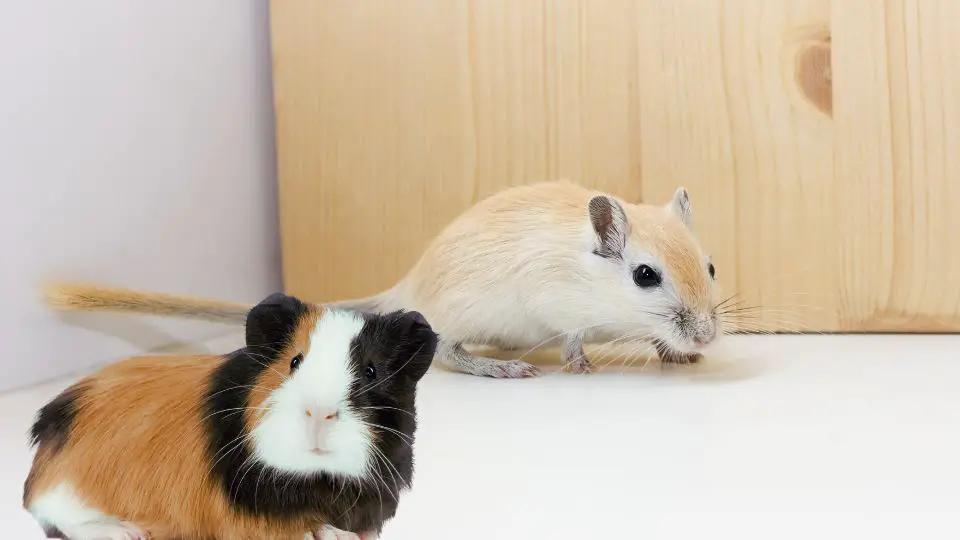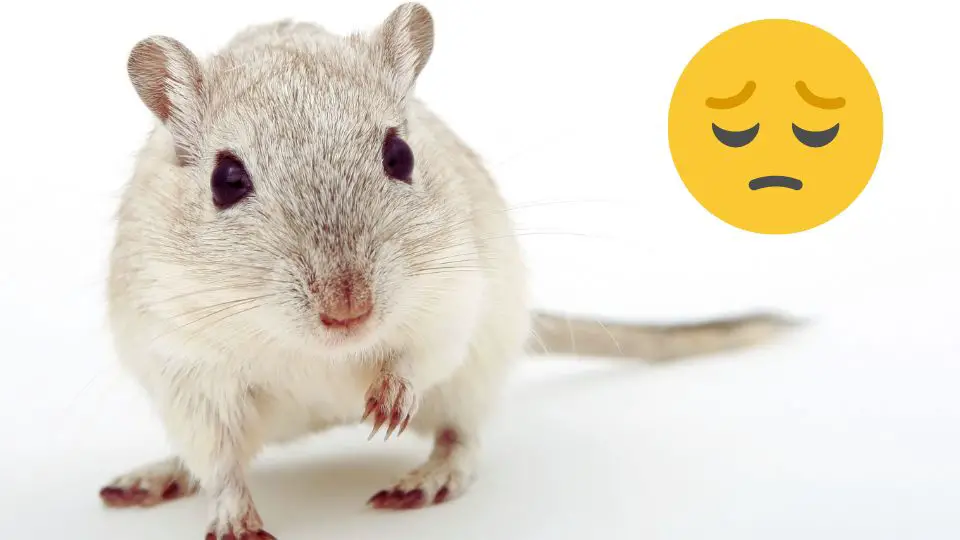When it comes to feeding our furry friends, it’s essential to provide them with a diet that meets their specific nutritional needs. Gerbils, small and active rodents, require a balanced diet to support their overall health and well-being. However, some pet owners may wonder if bird food can be a suitable option for feeding gerbils.
Yes, gerbils can eat some bird foods, including dried seed mixes, grains, and nuts. However, you have to understand that gerbils have specific nutritional requirements that differ from those of birds, and a diet based solely on bird food may lead to nutritional imbalances.
In this article, we will explore the question, “Can you feed gerbils bird food?” and examine the considerations involved.
Examining Bird Food Composition
Bird food, such as seed mixes and pellets, is specifically formulated to meet the nutritional needs of avian species. However, it is important to understand that the dietary requirements of birds differ from those of gerbils. While some components of bird food may be suitable for gerbils, it is crucial to carefully examine the composition and nutritional content to ensure it meets the specific needs of your gerbil.
Here, we will take a closer look at the composition of bird food and compare it to the dietary needs of gerbils.
Seeds and Grains
Bird food often contains a variety of seeds and grains, such as sunflower seeds, millet, corn, and wheat. While these ingredients can provide some nutritional value, they may not fulfill all the dietary requirements of gerbils. Seeds are often high in fats, which can be problematic if consumed in excess by gerbils and may lead to weight gain and related health issues.
Nutritional Imbalances
Bird food is formulated to meet the specific needs of birds, which differ from those of gerbils. For example, bird food may be high in certain nutrients, such as protein or specific vitamins, which may not be suitable or necessary for gerbils. Conversely, it may lack other essential nutrients that gerbils require for their overall health and well-being.
Pelleted Bird Food
Some bird food is available in pelleted form, which may contain a combination of seeds, grains, and other ingredients. These pellets are designed to provide a balanced diet for birds, but they may not be suitable as the sole food source for gerbils. Gerbils have different dietary requirements that include a higher fiber content compared to bird food.
Supplemental Use
In some cases, small amounts of bird food may be used as a supplemental treat for gerbils. However, it should not replace their primary diet, which should consist of a nutritionally balanced gerbil-specific food. Bird food can provide variety and enrichment, but it should not form the majority of their diet due to the differences in nutritional composition.
While some components of bird food may offer nutritional benefits, it is essential to consider the specific dietary requirements of gerbils. To provide a balanced diet, it is recommended to offer commercially available gerbil-specific food that is formulated to meet their unique nutritional needs. By prioritizing the right nutrition, you can help ensure the long-term health and well-being of your gerbil companion.
What foods are toxic to gerbils?
While gerbils have specific dietary needs, there are certain foods that can be toxic or harmful to them. It is essential to avoid feeding the following foods to gerbils:
- Chocolate: Chocolate contains theobromine, a compound that is toxic to gerbils and can lead to severe health issues.
- Citrus fruits: Citrus fruits, such as oranges, lemons, and grapefruits, contain high levels of citric acid, which can cause digestive upset and irritation in gerbils.
- Avocado: Avocados contain persin, a substance that is toxic to many animals, including gerbils. Ingesting avocado can lead to digestive problems and other health complications.
- Onions and garlic: Onions and garlic belong to the allium family and can cause damage to a gerbil’s red blood cells, leading to anemia.
- Rhubarb: Rhubarb contains oxalic acid, which can interfere with calcium absorption and potentially lead to kidney problems in gerbils.
- Alcohol and caffeine: These substances are toxic to gerbils and can have severe and even life-threatening effects on their health.
- High-fat or sugary foods: Foods that are high in fat or sugar can lead to obesity, diabetes, and other health issues in gerbils. It is best to avoid giving them sugary treats, fatty foods, or processed human snacks.
- Seeds and pits: Seeds or pits from fruits such as apples, cherries, peaches, or plums can pose a choking hazard to gerbils and should be removed before offering the fruit.
- Raw or undercooked meat: Gerbils are herbivores and have a digestive system that is not designed to process meat. Raw or undercooked meat can cause digestive issues and increase the risk of bacterial infections.
- Dairy products: Gerbils are lactose intolerant, and dairy products can cause digestive upset, including diarrhea.
Potential Issues with Feeding Gerbils Bird Food
Feeding gerbils bird food may seem like a convenient option, but it’s important to understand the potential issues that can arise from this practice.
While bird food is formulated to meet the nutritional needs of birds, it may not provide the appropriate balance of nutrients for gerbils. Here is what we recommend to keep in mind:
Nutritional requirements
Gerbils have unique nutritional requirements that are essential for their overall health and well-being. Their diet should consist of specific components in order to meet their dietary needs effectively.
- High fiber: Gerbils are natural herbivores and require a diet that is rich in fiber. Fiber is crucial for maintaining proper digestive function and preventing issues such as constipation or gastrointestinal blockages. It helps regulate their bowel movements and supports the growth of beneficial gut bacteria.
- Moderate protein: While gerbils need protein in their diet, it should be provided in moderation. Protein is essential for muscle development and maintenance, as well as other physiological functions. However, excessive protein intake can strain the kidneys and lead to health problems. Gerbil-specific food formulations take this into account and provide an appropriate amount of protein for their needs.
- Low fat: Gerbils have a low tolerance for fat in their diet. High-fat foods can lead to weight gain, obesity, and associated health issues. It’s important to provide a diet that is low in fat and focus on lean protein sources, complex carbohydrates, and fiber-rich foods.
To meet these nutritional requirements, gerbil diets typically consist of specially formulated pellets or mixes that are specifically designed for gerbils. These commercial diets are carefully balanced to provide the right combination of fiber, protein, and fat. They often include a variety of grains, seeds, and dried vegetables to mimic the gerbil’s natural diet.
It’s crucial to avoid feeding gerbils bird food as a primary diet. Bird food formulations are not designed to meet the specific nutritional needs of gerbils and may lack the appropriate balance of fiber, protein, and fat. Relying on bird food as the main source of nutrition for gerbils can lead to malnutrition, obesity, and other health problems.
Seed-based diets
Seed-based diets, commonly found in bird food, are not suitable as the primary diet for gerbils. While gerbils may enjoy nibbling on seeds, relying solely on a seed-based diet can lead to nutritional deficiencies and health issues.
Seeds are often high in fat and low in certain essential nutrients that gerbils require for proper growth and maintenance of their overall health. Consuming excessive amounts of seeds can contribute to weight gain, obesity, and related complications.
As we mentioned, gerbils require a balanced diet that includes a variety of foods to meet their nutritional needs. This should consist of a combination of high-quality gerbil pellets or mixes, fresh vegetables, and occasional fruits. These foods provide the necessary fiber, protein, vitamins, and minerals to support their growth, energy levels, and overall well-being.
Vitamin and mineral differences
Gerbils have specific vitamin and mineral requirements that may not be adequately met by bird food. For example, gerbils require vitamin C in their diet, whereas birds can produce their own vitamin C. Additionally, gerbils need a proper calcium-to-phosphorus ratio, which may not be present in bird food.
Pelleted vs. loose food
Bird food often comes in the form of loose seeds or mixes, which can lead to selective feeding in gerbils. Gerbils may pick out certain seeds they prefer and ignore others, resulting in an imbalanced diet. Pelleted gerbil food, formulated specifically for their nutritional needs, provides a more balanced and complete diet.
Potential additives
Some bird food mixes include dried fruits that may be treated with added sugars, preservatives, or artificial flavors to enhance taste and extend shelf life. These additives can be harmful to gerbils if consumed in excess.
Added sugars can lead to weight gain, dental issues, and even disrupt the natural balance of gut bacteria in gerbils. Preservatives and artificial flavors may also cause digestive upset or allergic reactions in some individuals.
So we recommend opting for products specifically formulated for gerbils’ dietary needs. These products undergo rigorous quality control and are designed to provide the necessary nutrients without any harmful additives.
Safe Alternatives for Gerbil Food
When it comes to feeding your gerbil, it’s important to provide them with a balanced and nutritious diet that meets their specific nutritional needs. While bird food may not be the best option for gerbils, there are plenty of safe and suitable alternatives available. Here are some gerbil foods that we recommend that can fulfill their nutritional requirements:
- Commercial Gerbil Pellets: High-quality commercial gerbil pellets are formulated to provide a balanced mix of nutrients, including fiber, protein, and essential vitamins and minerals. They serve as a good foundation for your gerbil’s diet and ensure they receive the necessary nutrients.
- Fresh Vegetables: Offer a variety of fresh vegetables to your gerbil. Some suitable options include carrots, broccoli, kale, spinach, and bell peppers. These vegetables are rich in fiber, vitamins, and minerals that promote overall health and digestion.
- Grains and Seeds: Include a variety of grains and seeds in your gerbil’s diet. Good options include oats, millet, barley, and flaxseeds. These provide carbohydrates, healthy fats, and essential nutrients.
- Occasional Fruits: Offer small amounts of fruit as a treat. Safe options include apple slices (without seeds), banana slices, and berries. Fruits should be given in moderation due to their higher sugar content.
- Hay: Provide high-quality timothy hay or meadow hay as a source of fiber and to aid in proper digestion. Hay also helps wear down their teeth and keeps them occupied.
- Insects and Mealworms: As a source of protein, occasional treats of dried insects or mealworms can be given to your gerbil. They mimic their natural diet and can be a source of enrichment.
- Fresh Water: Ensure your gerbil has access to fresh, clean water at all times. Use a water bottle with a sipper tube to prevent spillage and contamination.
FAQ
Can gerbils eat budgie food?
Gerbils should not be fed budgie food as their primary diet. Budgie food is formulated specifically for the nutritional needs of budgerigars and may not provide the right balance of nutrients for gerbils. It is best to choose a commercially available gerbil food that is specifically designed to meet their dietary requirements.
Can gerbils eat bird sunflower seeds?
Bird sunflower seeds can be given to gerbils as an occasional treat, but they should not be a significant part of their regular diet. Sunflower seeds are high in fat and can lead to weight gain and other health issues if consumed excessively. It’s important to offer sunflower seeds in moderation and balance them with a variety of other healthy foods.
Can gerbils eat chicken food?
Gerbils should not be fed chicken food intended for poultry. Chicken food is formulated for the nutritional needs of chickens and may not provide the proper balance of nutrients for gerbils. It is best to stick to commercially available gerbil food that is specifically designed to meet their dietary requirements.
Conclusion
While bird food may seem like a convenient option, it is not the ideal choice for feeding gerbils. Gerbils have unique nutritional requirements that differ from those of birds, and a diet primarily based on bird food can lead to nutritional imbalances and potential health issues.
It is best to opt for commercially available gerbil food that is specifically formulated to meet their dietary needs. Providing a well-rounded diet with a variety of suitable foods will ensure that your gerbil receives the essential nutrients it needs to thrive. As responsible pet owners, it is our duty to provide the best care possible, including proper nutrition for our beloved gerbils.







